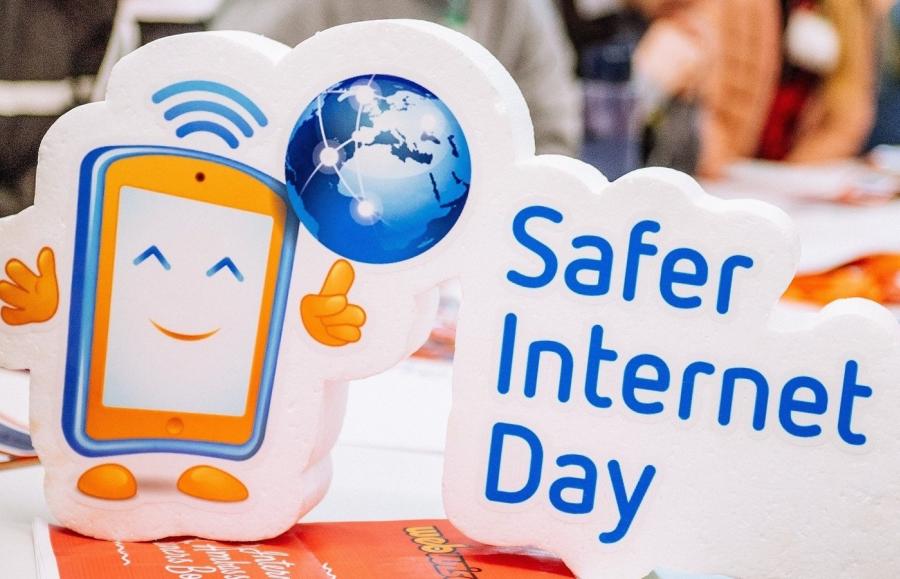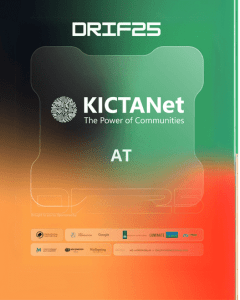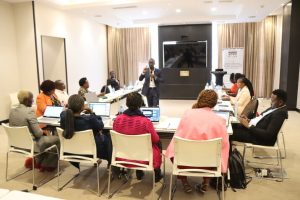By Valarie Waswa
As we embrace the digital age, the internet has become an integral part of our daily lives, offering endless opportunities for learning, connection, and growth. However, with these opportunities come challenges, especially concerning online safety. On February 11, 2025, KICTANet joins the global community in celebrating Safer Internet Day (SID) under the theme: “Together for a Better Internet.”
What is Safer Internet Day?
Initiated in 2004, Safer Internet Day is a worldwide event that promotes the safe and responsible use of digital technology, particularly among children and young people. The day calls upon all stakeholders—individuals, organizations, and governments—to collaborate in creating a safer and more inclusive online environment.
Kenya’s Celebrations: Spotlight on Watoto Watch Network
In Kenya, 2025 marks the 12th year of SID celebrations, coordinated by the Watoto Watch Network. Throughout February, various activities are planned to raise awareness about online safety, focusing on educating children, parents, and educators about the importance of responsible internet use.
Kenya’s Policy Frameworks
Kenya has established robust policy frameworks to enhance cybersecurity and promote safe internet practices. The Kenya Information and Communications Act (KICA) of 1998 mandates the development of a national cybersecurity management framework. It is in this regard that the National Kenya Computer Incident Response Team – Coordination Centre (National KE-CIRT/CC) was established. The National KE – CIRT is Kenya’s cybersecurity incident response unit, operated by the Communications Authority of Kenya (CA). It detects, prevents, and responds to cyber threats targeting Kenya’s digital infrastructure. KE-CIRT/CC provides cyber threat advisories, forensic investigations, incident coordination, and public awareness on cybersecurity best practices. It also works with local and international partners to strengthen Kenya’s cyber resilience and enforce compliance with national cybersecurity policies.
Internet and Social Media Usage in Kenya and Africa
As of January 2024, Kenya had approximately 22.71 million internet users, representing an internet penetration rate of 40.8%. Social media usage is also significant, with 13.05 million users, accounting for 23.5% of the population. Notably, Kenyans lead globally in social media engagement, averaging 3 hours and 43 minutes daily on platforms such as Facebook, YouTube, and X.
Recent Cybersecurity Trends
Kenya’s cybersecurity landscape has been under intense scrutiny following major data breaches and rising cyber threats leading up to February 2025. The Business Registration Service (BRS) data breach for example, in January 2025, raises concerns about data security in critical government systems. Similarly, the Directorate of Criminal Investigations (DCI) breach on February 9, 2025, saw the agency’s X (formerly Twitter) and Facebook accounts hacked, with attackers posting unauthorized cryptocurrency scam messages before access was restored. These incidents come as National KE-CIRT/CC reported 657.8 million cyber threats in Q1 of 2024/25, with system misconfigurations, phishing, and IoT vulnerabilities among the top attack vectors. These breaches highlight the urgent need for robust security frameworks, proactive threat detection, and enhanced public awareness to safeguard Kenya’s digital infrastructure.
KICTANet’s Initiatives to Promote Internet Safety
The KICTANet plays a pivotal role in advocating for internet safety. KICTANet has been at the forefront of promoting internet safety through several key initiatives:
This initiative creates a secure platform for individuals affected by online gender-based violence to report cases, seek support, and access digital security tools. It has equipped numerous individuals—including women, journalists, and human rights defenders—with critical digital self-defense skills. Central to this effort is the Tatua Digital Resilience Centre, which aims to provide a range of services to Social Justice Organizations (SJOs) in East Africa, helping them strengthen digital resilience, swiftly respond to cyber threats, and leverage technology to advance their missions. Initially, the Centre will support SJOs in Kenya, Tanzania, and Uganda, with plans to expand across East Africa and eventually the entire continent.
This project had a keen focus on marginalized populations. Through this initiative, KICTANet has developed educational materials such as videos, animations, and comic strips to promote safe online practices. Through this project, over 30,000 individuals—including persons with disabilities, youth, women, and rural farmers—have received training delivered by 140 community-led trainers.
This project is led by KICTANet with support from the UK Government’s Digital Access Programme through the British High Commission in Nairobi, in collaboration with the Government of Kenya, the County Governments of Busia and Mandera and various partners. Its main aim is to train 10,000 community digital champions (CDCs) on digital skills which will cascade the training to 500,000 citizens through direct contact, contributing to Kenya’s target of reaching 20 million digitally literate citizens by 2027.
Conclusion
As we observe Safer Internet Day 2025, let’s remember that creating a safer online environment is a collective responsibility. By staying informed, practicing good cyber hygiene, and supporting initiatives like those led by KICTANet and Watoto Watch Network, we can work together towards a better internet for all.
About the author:
Valarie Waswa is a Legal Fellow at Gender Digital Rights Advocate at KICTANet
![]()




